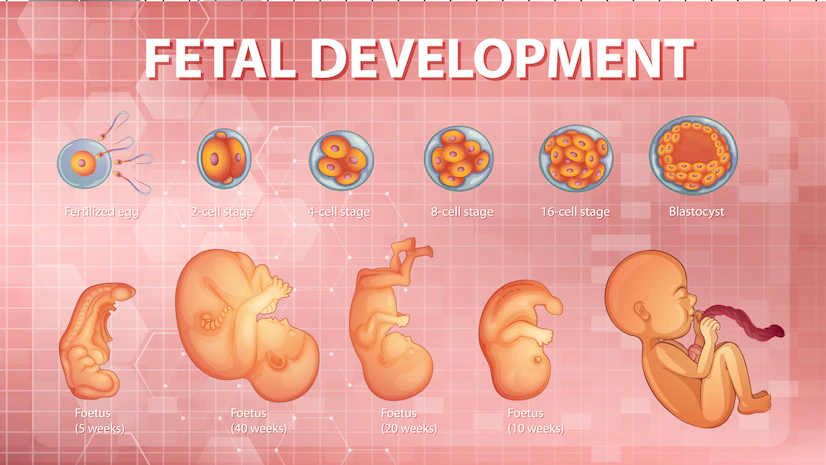Morning sickness is a common presenting symptom characterized by occasional nausea and vomiting. Morning sickness, despite the name, could indeed cause pain at any time of day.
When Does morning sickness first Appear?
Morning sickness symptoms typically occur between weeks five to six of pregnancy and nearly always before week nine. Reprieve happens typically by the end of the first trimester, with 87percentage points of pregnant women experiencing relief by the 20-week mark.
A small proportion of pregnant women encounter nausea and vomiting for the period of their pregnancy.
Morning sickness causes

Morning sickness throughout pregnancy has no single cause, and the severity varies from woman to woman. One of the most likely reasons is a rise in hormone levels during the first few weeks of pregnancy. Another primary reason for morning sickness is low blood sugar.
Other factors could exacerbate morning sickness. These are some examples:
- Possessing twins or triplets
- excessive exhaustion
- mental anguish
- a lot of traveling
Morning sickness could indeed vary from pregnancy to pregnancy. Although you might have had severe morning sickness during one pregnancy, it could be exceptionally mild in subsequent pregnancies.
Morning sickness’s potential complications

Nausea and vomiting are common causes of appetite loss. Numerous pregnant women are concerned that this may harm their unborn children. Mild morning sickness is usually harmless.
Women who experience morning sickness after the first three to four months of pregnancy should consult their doctor. Seek help if you aren’t putting on weight during your pregnancy.
Morning sickness is rarely severe enough to cause problems with fetal growth and development. Some pregnant women experience extreme vomiting and weight loss due to nausea.
This is known as hyperemesis gravidarum. It results in electrolyte imbalances and unintended weight loss. This circumstance, if left untreated, might very well ultimately harm your baby.
Treatment
Morning sickness is annoying for most people but does not necessitate medical attention. Fortunately, lifestyle and dietary adjustments could offer some relief.
- Here are some suggestions to help you with some of your symptoms:
- After eating, brush your teeth and avoid lying on the floor (to prevent reflux).
- Strong odors, heat, moisture, noise, salty foods, and strobing lights are all potential triggers.
- Eat early in the day: Dry, bland crackers or a rising snack can be beneficial before your day begins.
- Eat frequently: Eating small, regular meals (every one to two hours) could help prevent stomach overflow or excessive hunger between meal options.
- Hydrate: Drink cold, clear, carbonated, or sour drinks like flavored water, ginger ale, or lemonade between meals.
- Nap: Have enough rest to prevent becoming drowsy.
If you are taking an iron-containing prenatal vitamin, consult your doctor. Switching to an iron-free prenatal vitamin may be an option for reducing nausea. It may also be beneficial to take your prenatal vitamin at night.
If your morning sickness symptoms start interfering with your life’s quality, your doctor may recommend treatment. If you are having difficulty consuming enough fluids as well as food, or if you are losing weight, you could require additional support.
Supplements
Ginger capsules taken several times per day have been found to alleviate nausea.
Grated fresh ginger in hot water (like a chai) is another choice, as is crystallized ginger. Before using this complement, consult your doctor to see if it’s right for you.
Vitamin B6 (pyridoxine) alone or in a mixture with doxylamine (an antihistamine discovered in so many sleeping pills like Unisom) are frequently the first medications tried. Vitamin B6 and doxylamine are accessible as completely different over-the-counter medications.
A pairing prescribing item (Diclegis) is also accessible. Vitamin B6 with doxylamine has successfully treated nausea and vomiting symptomatology and is well accepted. The most common complication is tiredness. It has also been proven to be secure for your baby.
How to Avoid Morning Sickness?
The basic process could help prevent or alleviate nausea:
- Consume plenty of water.
- Take a nap.
- Ventilate your residence and working space to remove nauseous scents.
- Avoid consuming spicy foods.
- Consume small meals.
- Avoid eating fatty foods.
- At night, take your vitamins.
- Smoking cigarettes should be avoided.
If none of these precautions work, or if you encounter morning sickness after the first 3 to 4 months of your pregnancy, you should consult your doctor.
Also, before beginning any medicines or option remedies, consult with your doctor to debate your choices.
How does morning sickness begin?
Morning sickness refers to the sensation of throwing up, also known as nausea and vomiting, which develops during pregnancy. Morning sickness, despite the name, could indeed occur at any time of day or night. Morning sickness is common, particularly during the first three months of the pregnancy.
Why am I nauseous but not vomiting during my pregnancy?
Morning sickness is connected with hormonal changes that take place during pregnancy. However, the precise cause is unclear. Nausea is caused by a lack of dietary potassium and magnesium, low blood sugar, and reduced levels of vitamin B6 (pyridoxine).
Does nighttime morning sickness indicate a boy or a girl?
Is morning sickness at night a sign of a girl or a boy? It wouldn’t have seemed to be much of a link between your baby’s gender and the onset of nausea.
Does morning sickness appear unexpectedly?
If you are one of the many pregnant women who suffer from morning sickness, you could begin to feel nauseous all around 6th week of your pregnancy, which is usually two weeks after your first missed period. Symptoms may appear gradually or seem to appear suddenly.
Is morning sickness similar to a hangover?
What precisely does it feel like? All through pregnancy, nausea after eating could mimic car or sea sickness (minus the boat). You could also compare it to a hangover.
Do you get super hungry during your first trimester?
An unbalanced diet is widespread during pregnancy. Adjustments in your hormones could make you feel hungry anytime, beginning in early pregnancy. Trying to eat fiber-rich foods and consuming a lot of fluids throughout the day could indeed assist you in staying full longer.
References


